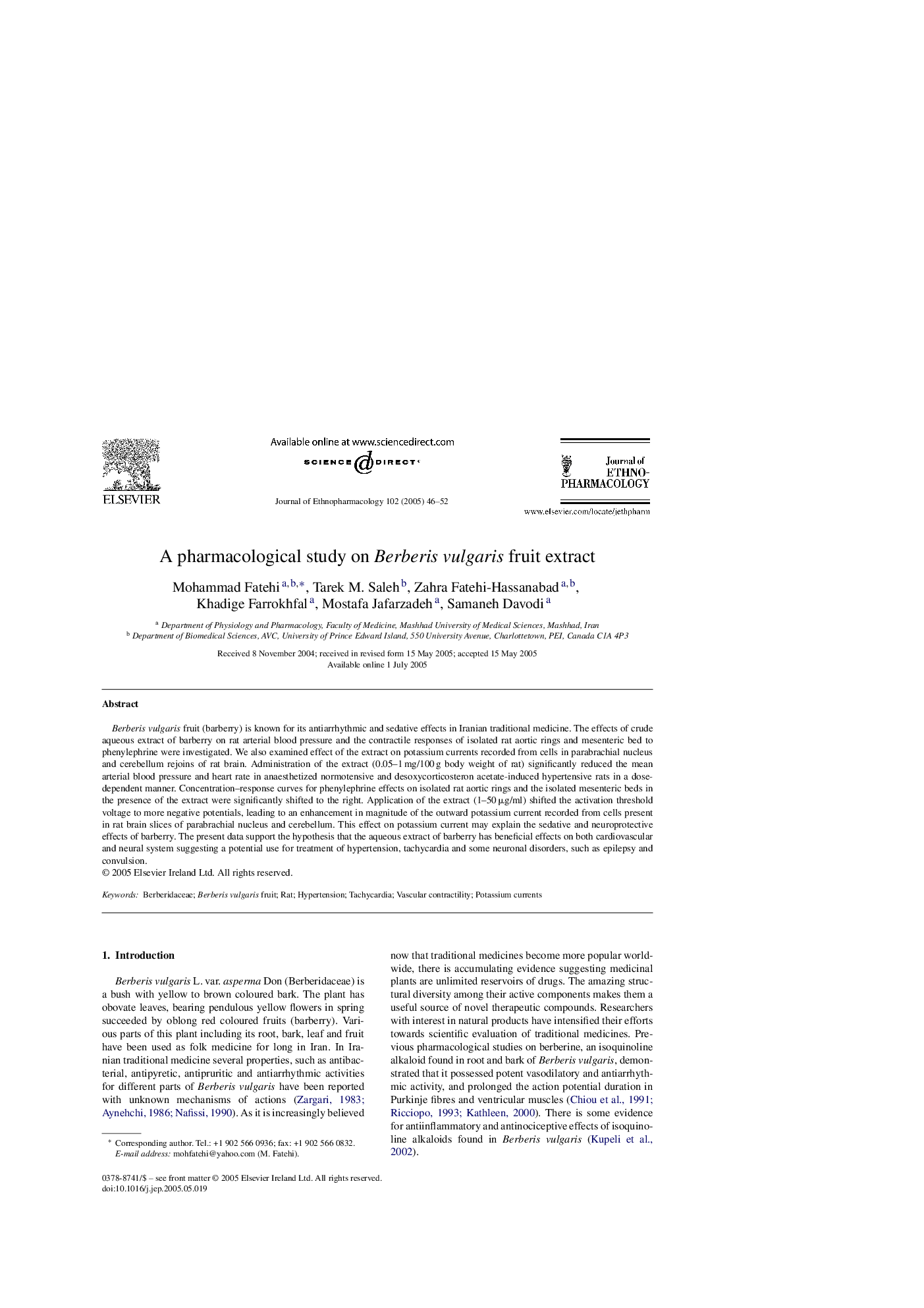| Article ID | Journal | Published Year | Pages | File Type |
|---|---|---|---|---|
| 9009724 | Journal of Ethnopharmacology | 2005 | 7 Pages |
Abstract
Berberis vulgaris fruit (barberry) is known for its antiarrhythmic and sedative effects in Iranian traditional medicine. The effects of crude aqueous extract of barberry on rat arterial blood pressure and the contractile responses of isolated rat aortic rings and mesenteric bed to phenylephrine were investigated. We also examined effect of the extract on potassium currents recorded from cells in parabrachial nucleus and cerebellum rejoins of rat brain. Administration of the extract (0.05-1 mg/100 g body weight of rat) significantly reduced the mean arterial blood pressure and heart rate in anaesthetized normotensive and desoxycorticosteron acetate-induced hypertensive rats in a dose-dependent manner. Concentration-response curves for phenylephrine effects on isolated rat aortic rings and the isolated mesenteric beds in the presence of the extract were significantly shifted to the right. Application of the extract (1-50 μg/ml) shifted the activation threshold voltage to more negative potentials, leading to an enhancement in magnitude of the outward potassium current recorded from cells present in rat brain slices of parabrachial nucleus and cerebellum. This effect on potassium current may explain the sedative and neuroprotective effects of barberry. The present data support the hypothesis that the aqueous extract of barberry has beneficial effects on both cardiovascular and neural system suggesting a potential use for treatment of hypertension, tachycardia and some neuronal disorders, such as epilepsy and convulsion.
Related Topics
Health Sciences
Pharmacology, Toxicology and Pharmaceutical Science
Pharmacology
Authors
Mohammad Fatehi, Tarek M. Saleh, Zahra Fatehi-Hassanabad, Khadige Farrokhfal, Mostafa Jafarzadeh, Samaneh Davodi,
